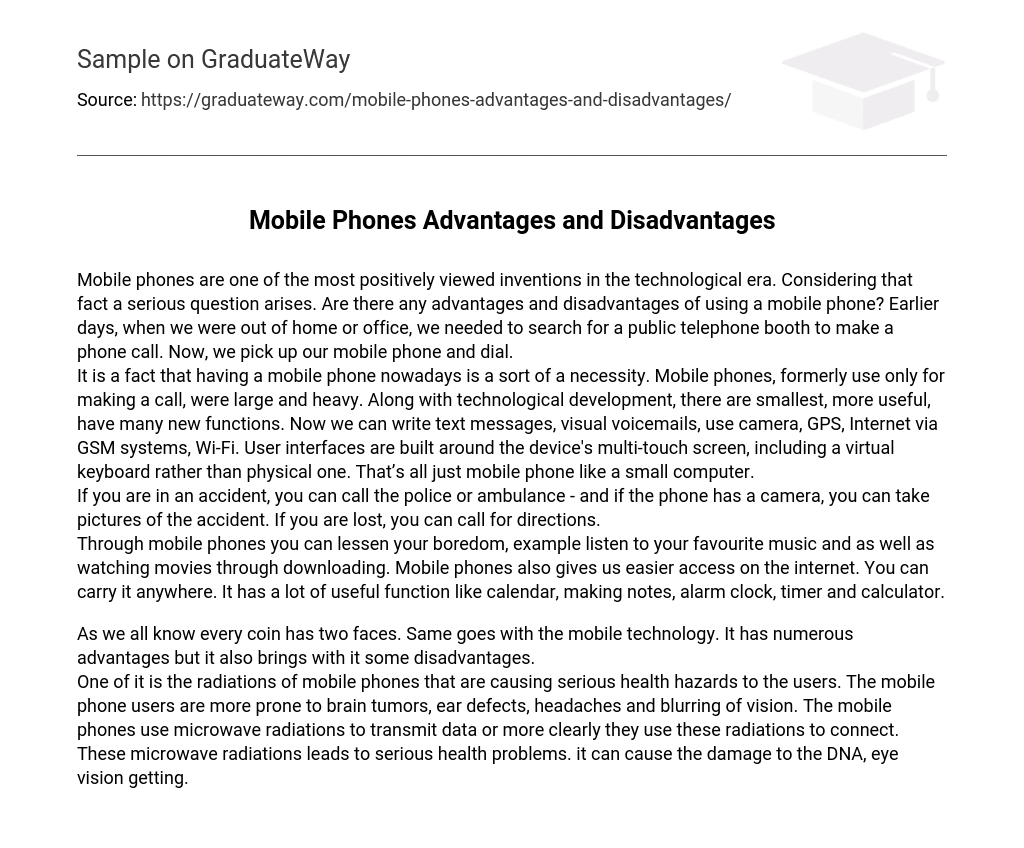Mobile phones are widely considered to be one of the most advantageous inventions in our technological era, but it is important to weigh their pros and cons. Previously, making a call outside of home or the office required finding public telephone booths; now we can simply use our mobile phones. Having a mobile phone has become essential because it offers more than just calling abilities. Initially, mobile phones were large and heavy, but advancements in technology have made them smaller and more practical. They now offer various functions like sending text messages, accessing visual voicemails, taking photos with cameras, using GPS and internet through GSM systems or Wi-Fi. The device’s multi-touch screen acts as its user interface with a virtual keyboard replacing physical ones. Essentially functioning as mini-computers, mobile phones also prove handy during emergencies by allowing users to call the police or an ambulance while even capturing accident photos if equipped with a camera. Additionally, they provide entertainment and convenience by enabling users to listen to their favorite music or watch movies through downloads. Moreover, they provide convenient internet access and can be easily transported anywhere. Furthermore, they offer an array of practical features such as a calendar, note-taking capabilities, alarm clock, timer, calculator, and other useful attributes.
Mobile technology has its pros and cons. While it offers numerous benefits, there are also some drawbacks to consider.
Among the disadvantages is the possible negative impact on health due to radiation emitted by mobile phones. Regular use of mobile phones increases the risk of various conditions including brain tumors, ear defects, headaches, and blurred vision. This is because mobile phones utilize microwave radiations for data transmission and connectivity purposes.
As a result, these microwave radiations can pose significant health risks by damaging DNA and causing visual impairments.





